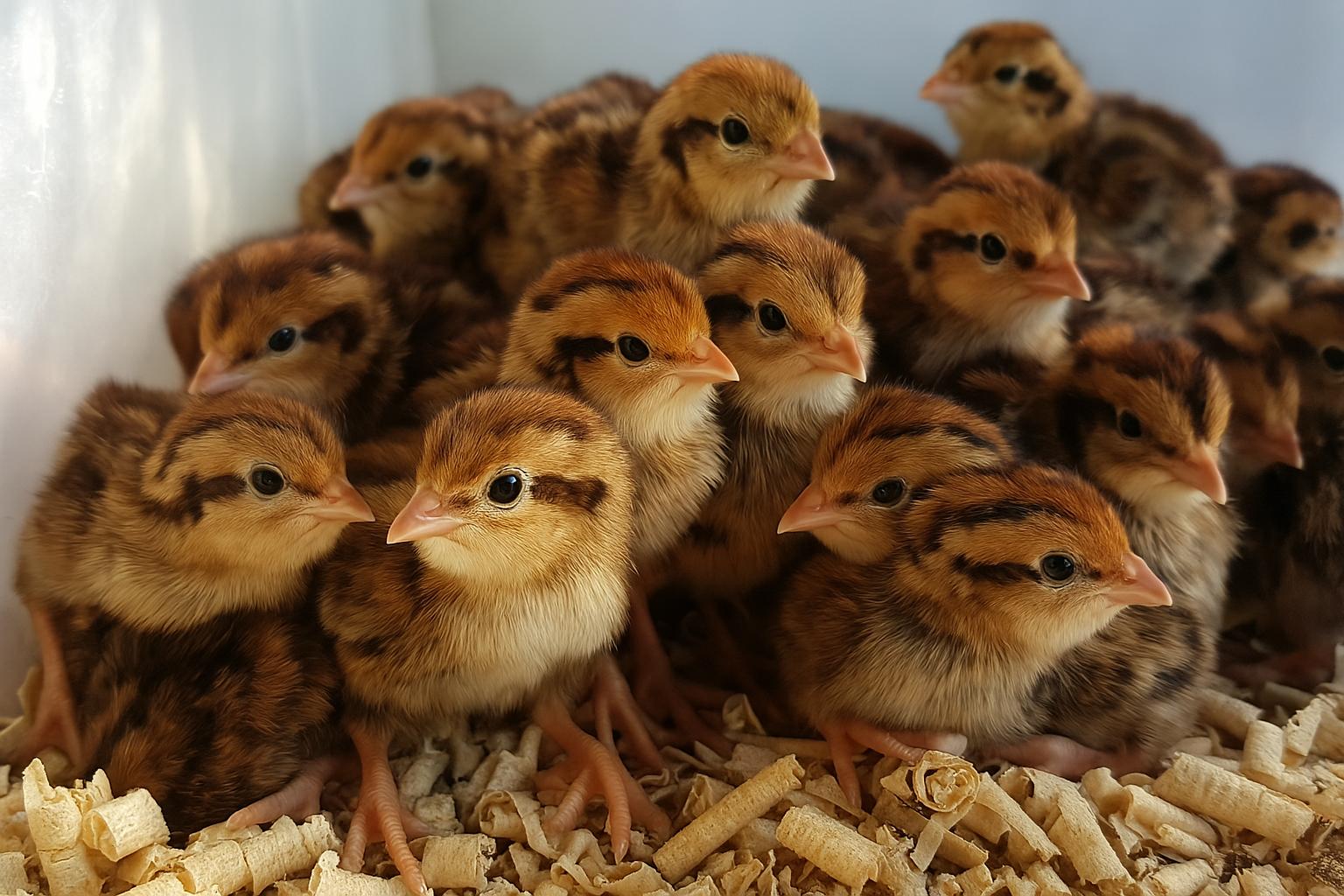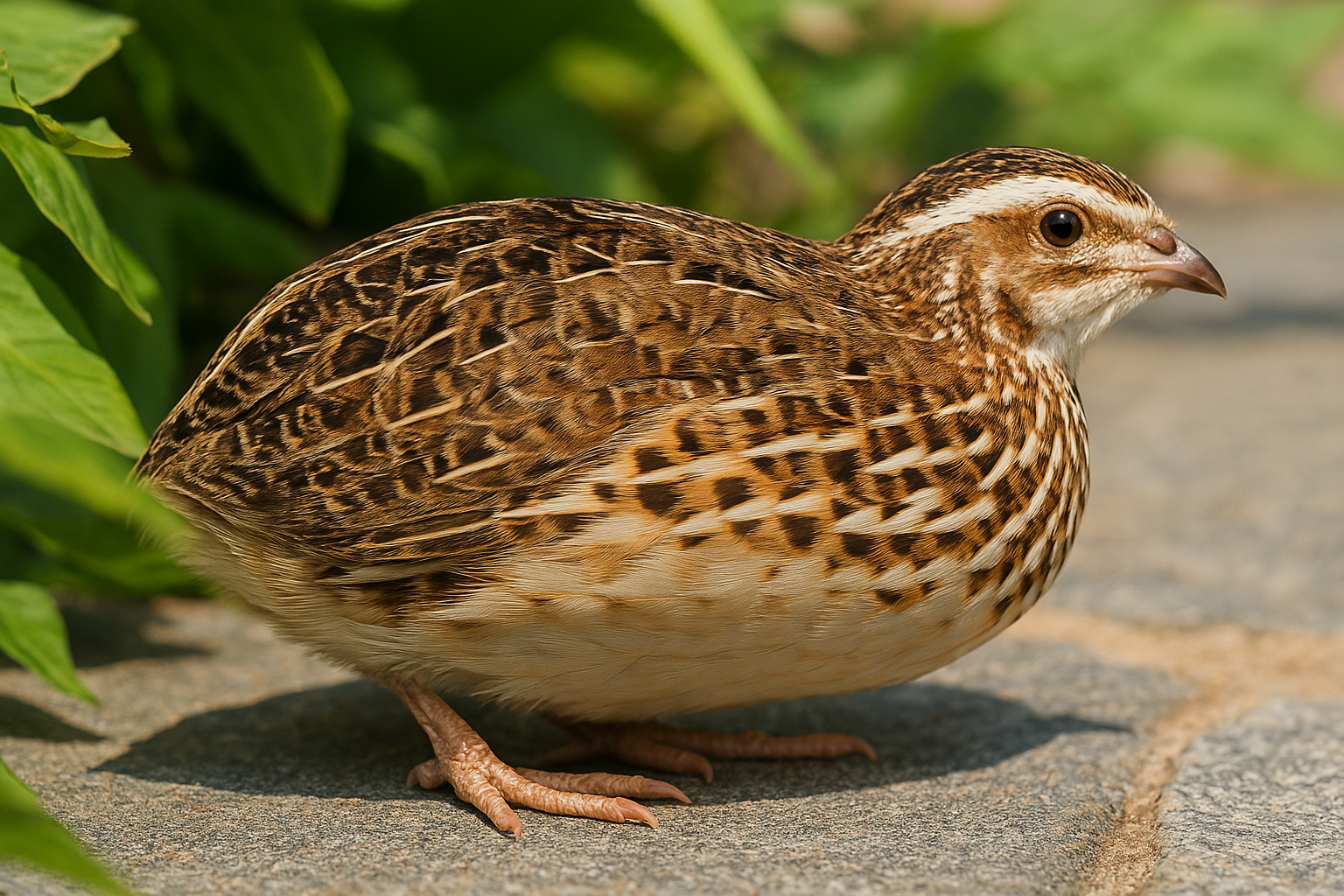📝 Quail Care Checklist
---------------------------------------------------------------------------------------------------------
🏠 Housing & Environment
Secure Enclosure:
Ensure the quail are housed in a predator-proof enclosure with
adequate ventilation.
Space Requirements:
Provide at least 1 square foot (0.09 m²) per bird to prevent
overcrowding.
Dust Bath Area:
Include a designated area with sand or fine dirt for dust
bathing, which helps in parasite control.
Perches & Hiding Spots:
Add perches and hiding spots to reduce stress and mimic natural
habitat.
---------------------------------------------------------------------------------------------------------
🍽️ Feeding & Nutrition
Starter Feed:
For chicks, provide a high-protein starter feed (24-28% protein)
until 6 weeks of age.
Grower Feed:
Transition to a grower feed (18-20% protein) from 6 to 12 weeks.
Layer Feed:
For laying hens, offer a layer feed with added calcium to
support eggshell formation.
Fresh Water:
Ensure constant access to clean, fresh water.
---------------------------------------------------------------------------------------------------------
🐣 Breeding & Incubation
Breeding Ratio:
Maintain appropriate male-to-female ratios (e.g., 1:4 for
Coturnix quail) to prevent overmating and aggression.
Incubation Conditions:
Set incubator temperature at 99.5°F (37.5°C) with 45-55%
humidity; increase humidity to 65-70% during the last 3 days
before hatching.
Egg Turning:
Turn eggs at least 3 times daily until day 14 to prevent embryo
adhesion.
Brooder Setup:
Prepare a brooder with a temperature of 95°F (35°C) for newly
hatched chicks, decreasing by 5°F each week.
---------------------------------------------------------------------------------------------------------
🧼 Health & Hygiene
Regular Cleaning:
Clean feeders and waterers daily; disinfect the enclosure weekly
to prevent disease.
Health Monitoring:
Observe quail daily for signs of illness, such as lethargy,
ruffled feathers, or changes in eating habits.
Biosecurity Measures:
Limit exposure to wild birds and rodents; quarantine new birds
for at least 2 weeks before introducing them to the flock.
Vaccinations & Parasite Control:
Consult with a veterinarian regarding necessary vaccinations and
parasite prevention protocols.
---------------------------------------------------------------------------------------------------------
🧰 Equipment Checklist
Incubator with temperature and humidity controls
Brooder with heat source (heat lamp or heating plate)
Feeders and waterers suitable for quail
High-quality feed appropriate for the quail's life stage
Bedding material (e.g., pine shavings, straw)
Cleaning supplies (disinfectant, brushes)
Protective netting or wire mesh for enclosure
---------------------------------------------------------------------------------------------------------


.png)